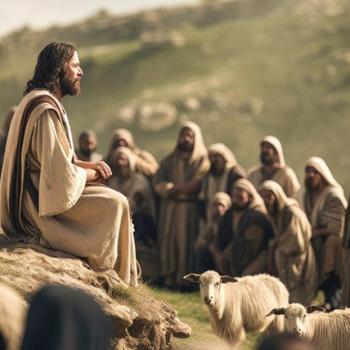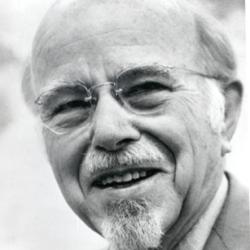In Exodus, God catalyzes a “people planting movement.”

This differs from “disciple making movements” or “church planting movements” (CPM). In fact, I have argued elsewhere that there are no CPMs in in the Bible.
In Exodus 13, we see God in the early stages of planting a royal priesthood and a holy nation (cf. Exod 19:6). From these Israelites, the Lord would grow a people who are called by His name.
Out of a desire to see people saved, we face the temptation to compromise by yielding to pragmatism, especially in church planting methodology. Instead, we should be mindful that the Bible has something to say about our methods, not only our message.
How does God plant His people?
God is Faithful, not Fast
In Exodus 13:1–10, 19 explicitly remind us of God’s promises to Abraham, Isaac, and Jacob. This is why
Moses took the bones of Joseph with him, for Joseph had made the sons of Israel solemnly swear, saying, “God will surely visit you, and you shall carry up my bones with you from here.” (v. 19)
It took around 400 years for God to fulfill His promises to rescue Israel from slavery. One can almost understand why some people might think the Lord had forgot them. What are we to learn from this?
The Lord is faithful.
The Lord keeps His promises to His people. He will save them and build them up. However, it may take longer that we think. His plan might cause us to suffer more than we would like.
This raises a few relevant questions.
Are we willing to take measures or make plans for the long term? Are we willing to stay and be buried in the places we serving? Ask yourself, “What do we call ‘home’?” Your passport country or the country in which you serve?
Rapidity is Not Always Right
Notice how Exodus 13:17–18a contrasts much of modern mission thinking,
When Pharaoh let the people go, God did not lead them by way of the land of the Philistines, although that was near. For God said, “Lest the people change their minds when they see war and return to Egypt.” But God led the people around by the way of the wilderness toward the Red Sea.
Here is a key idea for us: the Lord does not always want us to take the fastest route.
God prioritizes His reputation, not rapidity.

The Lord’s will does not always make sense to us. Why? In part, we often are quite unaware of the true condition of our heart. The Israelites’ hearts were not ready for the “faster” route.
In view of Exodus 14:17–18, the Lord had a greater plan, one that gave God glory in Israel and among all nations.
And I will harden the hearts of the Egyptians so that they shall go in after them, and I will get glory over Pharaoh and all his host, his chariots, and his horsemen. And the Egyptians shall know that I am the Lord, when I have gotten glory over Pharaoh, his chariots, and his horsemen.”
What do we learn about God’s “people planting movement” (i.e. the exodus)? It is about more than Israel’s salvation; it primarily concerns God’s glory.
The faster, more “efficient” path often is not most glorifying to God.
Our goal is to magnify and only then to multiply. We shouldn’t confuse the two. They are not necessarily the same thing.
Here are a few application questions:
- As you consider your ministry strategies, which of the possible “slower” paths might actually be the one chosen by God that will give Him glory and protect our hearts?
- Shouldn’t we intentionally reflect on ways that may be counter-intuitive, immediately slower, but better in the long run?

God’s manner of leading in the past is at least suggestive of how He might lead us in the present. The unfolding of salvation history is testimony enough that the Lord is patient and less concerned with speed than we are. There is a difference between urgency and hastiness. The former entails intentionality; the latter is concerned foremost with time
As far as the Lord is concerned, it was more urgent that Israel know more about the Lord than it was for them to
…. do what most rapidly led to salvation,
…. get to Sinai to receive the Law, and
…. be comfortable, finding rest in the promised land.
This is a key point for those who minimize theological education in a missions context.
There is a Cost
What can we learn about the people within God’s “people planting movement”?
Redemption is costly even to those who are redeemed.
Why? They must give up their old ways in order to follow the Lord and embrace their new way of life. Consider Exodus 13:12–15,
. . . you shall set apart to the Lord all that first opens the womb. All the firstborn of your animals that are males shall be the Lord’s. Every firstborn of a donkey you shall redeem with a lamb, or if you will not redeem it you shall break its neck. Every firstborn of man among your sons you shall redeem . . . . Therefore I sacrifice to the Lord all the males that first open the womb, but all the firstborn of my sons I redeem.
The people are redeemed through sacrifice.
How often do people emphasize that salvation is “free”? We really need to define “free.” The truth is, God’s people must count the cost of following Him. Yet, I rarely see or hear people talking about the cost of faith.
Tell people the cost!
Saved for Conflict . . . Not from It
Finally, in Exodus 13:18b, we see one more intriguing observation:
And the people of Israel went up out of the land of Egypt equipped for battle.
They assume salvation comes through conflict (not that salvation means freedom from conflict).
God’s promises lead to preparation, not presumption.
As we serve God, do we have proper expectations? God’s will is that we would glorify him by waiting for Him with patient joy. How are we enduring the wait?
May Col. 1:11 be our prayer, “May you be strengthened with all power, according to his glorious might, for all endurance and patience with joy.”
(This post previously appeared on the Training Leaders International blog, 3 Aug 2015)

















